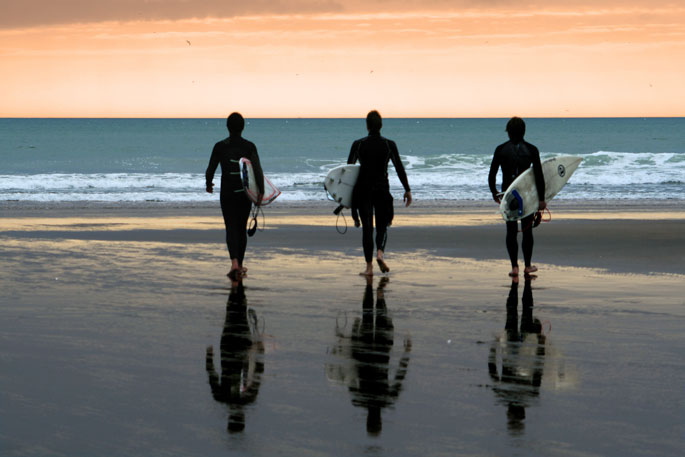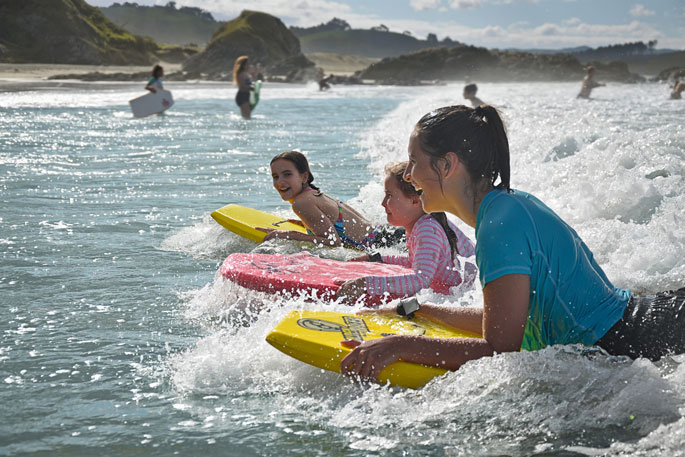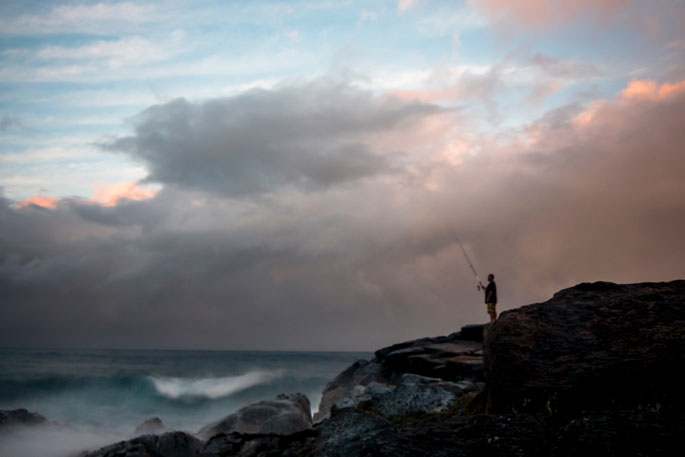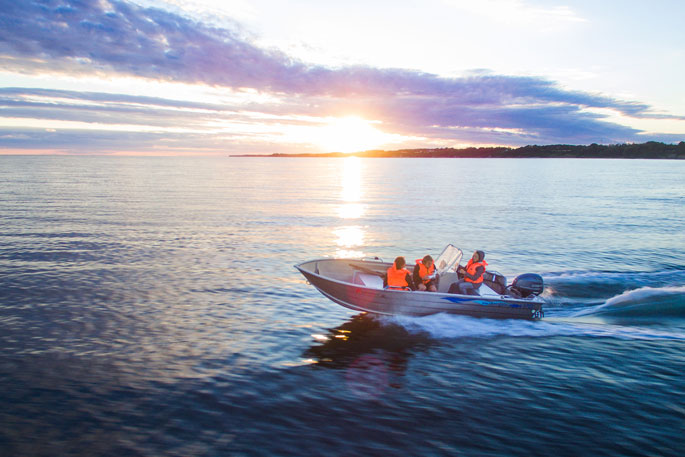It may be the middle of winter, but today being World Drowning Prevention Day is a timely reminder to respect the water through all the seasons.
In the first six months of 2024 (January 1 - June 30), Water Safety New Zealand has provisionally recorded 38 preventable drownings across Aotearoa.
This is down from 53 preventable drownings at the same time last year, which included six drowning deaths due to Cyclone Gabrielle.
In the Bay of Plenty, there were two preventable drownings in the first six months of 2024.
Compared to the four preventable drowings in the BOP for the same time period last year.
In 2023, a total of 90 New Zealanders suffered preventable drownings with 58 percent of those men over the age of 45.
The World Health Organisation’s (WHO) theme this year for World Drowning Prevention Day is “Seconds can save a life”.
To mark the day, councils accross NZ are lighing up landmarks blue.
In Tauranga, the Bay Court Community and Arts Centre and in Rotorua, the Civic buildings, Prince’s Gate & Clock Tower will be blue to mark the occasion.
The WHO website says drowning is often a phantom lurking in the shadows, ready to pounce when least expected.
“Drowning is abrupt, silent and shocking, with people often not realising it’s happening until it’s too late.”
The world is coming together to raise awareness for drowning prevention. ACC and Water Safety New Zealand are challenging people to stay safe during the winter months.
"We are still seeing an unacceptable number of preventable deaths," says Water Safety New Zealand chief executive Daniel Gerrard.
“Especially among older New Zealand males who continue to make risky choices around water.
“We know a lot of New Zealanders love to enjoy the water throughout the winter months, and we want to encourage that in a safe and responsible manner.
“The water is much colder during the winter period which means you have less margin for error if you get it wrong.”

In 2023, ACC accepted 18,351 water-related injury claims, which came at a cost of $64 million to help people recover.
During the winter months (June, July, August) in 2023, the activities with the highest number of injury claims were surfing (926), swimming (883), swimming in a pool (316) and boating (126).
Daniel says it is important for all winter water enthusiasts to be aware of the dangers of ‘cold water shock’. It can lead to an immediate risk of drowning or cardiac arrest.
The average winter temperature of our oceans is 15°C and inland waters like lakes, rivers and waterfalls can be much colder.
“When plunged into cold water our first instinct is to gasp for air with an uncontrollable ‘gasp reflex’. Taking on one large breath of water is enough to prove fatal,” he says.
“Our natural response is to swim hard and fight against the shock. This causes people to lose control of their movements and rapidly increases their heart rate. This lowers the chances of survival. All this happens in under two minutes.”
Rather than panic, Daniel encourages people who fall into the water to lie back, relax and float.
“Floating on your back gives you the best chance of survival if you’re in trouble in the water.
“The four key tips to remember are float, breathe, signal and survive.”
ACC injury prevention leader James Whitaker says World Drowning Prevention Day is an opportunity to be more mindful of the risks in and around the water.
“A drowning is a devastating event for any whānau, and community and our hearts go out to every family who has lost a loved one,” he says.
“Most of these tragic drownings are preventable if we take the time to consider the risks.”

ACC partners with Water Safety NZ to keep children safe in and around water, as the principal partner of the ACC Water Skills for Life programme.
"Knowing how to swim is not enough, Water Skills for Life teaches other life-long water safety and survival skills," says James.
“They are critical skills that could save your kids' life.”
Whitaker stressed the importance of following the Water Safety Code.
Maritime New Zealand said anyone heading out on a boat should follow the Boating Safety Code.
The number of drownings last year was above the 10-year average of 82, but lower than 2022's 94 preventable drownings.
Males accounted for 83 per cent of those who drowned in 2023.

Unintentional slips and falls led to 29 of the drownings, while in 19 cases people were swimming or playing in the water.
Of the 90 drownings, 26 were at beaches, 24 in rivers, 11 in pools and 11 offshore.
“Far too many New Zealanders are drowning, and these events are preventable,” says Whitaker. “If we take time to assess the risks and make smart choices before we jump in, we can keep on doing the things we love.”
How to Float first?
- Float first
- Lie back with your ears underwater, chin up
- Move your hands to help you float
- It’s okay if your feet sink
- Ignore your instinct to swim
- Breathe normally.
- Relax
- Slow your breathing to help you calm down
- Breathing will get easier
- Signal for help.
- Raise your arm
- Shout for help
- Survive by swimming or floating.
- Swim to safety if you can
- Float when it’s not safe to swim
- Hold onto anything that helps you float
- Keep clothes on to stay warmer
Water Safety Code:
- Be prepared – Check the weather, your gear and the water conditions.
- Look after yourself and others – Adults, not children or teenagers, should always supervise little people and children around water.
- Be aware of the dangers – Check for rips and currents, snags and rocks and don’t consume alcohol before a swim, dive or going fishing.
- Know your limits - Do you know how to swim? If not, stay out. Remember, you will never be able to swim in the ocean as well as in a pool and cold water will make you tired.
Boating Safety Code:
- Wear your lifejacket.
- Take two waterproof ways to call for help.
- Check the marine weather forecast.
- Avoid alcohol.
- Be a responsible skipper.



0 comments
Leave a Comment
You must be logged in to make a comment.